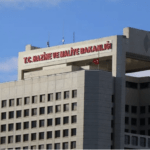Financial Action Task Force (FATF) President T. Raja Kumar said that Turkey has taken very important steps towards getting off the gray list. “The General Assembly will decide in June 2024 whether Turkey will be removed from the gray list,” Kumar told the EKONOMİ newspaper, adding that Turkey has shown a high-level commitment to work with the FATF to strengthen its system.
Stating that Turkey has agreed on a detailed action plan, including the addition of more human resources for the supervision of high-risk entities and the adoption of a risk-based approach to supervision to prevent the abuse of non-profit organizations, Kumar said, “At the February 2024 General Assembly, FATF members determined that Turkey has now completed its action plan and that this progress requires a site visit to be conducted before June 2024. During this on-site assessment, a team of experts will verify Turkey’s progress and report its findings to the General Assembly. The General Assembly will then decide in June 2024 whether Turkey should be removed from the gray list.”
Established in 1989 within the Organization for Economic Cooperation and Development (OECD), FATF is the organization that sets the recommendations and rules for combating money laundering. FATF, of which Turkey became a member in 1991, has a total of 39 members consisting of 37 countries and 2 institutions. The organization has also been in charge of controlling the financing of terrorism since the September 11 attacks in 2001.
Can you briefly describe the FATF’s gray list, in which cases do you put countries on the gray list, what are the disadvantages of being on this list?
Illicit finance enables and finances a wide range of criminal activities such as drugs, arms trafficking, corruption and terrorist attacks. It also causes inequality, job losses and challenges to economic development. It is therefore vital that all countries take action against illicit financing. Through its work on high-risk and monitored regions, FATF identifies through its ‘gray’ and ‘black lists’ countries that have significant gaps in their AML/CFT/CPF systems and have failed to take the necessary measures. Doing so helps raise awareness of the specific risks emanating from these regions so that appropriate risk mitigation measures can be put in place. Publicly identifying relevant territories limits the potential for unwitting involvement in criminal transactions and helps to keep illicit financial flows out of the global financial system.
Being on the gray list is not a punitive measure. Rather, it draws attention to systemic gaps and is a powerful and effective tool to build political commitment to implement the necessary reforms that will improve the strength and transparency of the country’s financial system and contribute to the country’s overall economic development. Once the country has fully addressed its key gaps and is removed from the FATF gray list, it can enjoy the fruits of its hard work, namely a strong system that provides greater domestic and international confidence and paves the way for investments and economic growth. This has been the experience of countries that have successfully exited the gray list.
Why is Turkey on the gray list, what were the factors that triggered Turkey’s inclusion on the gray list?
The FATF’s 2019 assessment of Turkey’s measures to combat money laundering and terrorist financing revealed key shortcomings in the country’s AML/CFT/CPF framework. In the year following the assessment, Turkey made some progress on the recommended actions identified in the mutual evaluation report, but serious shortcomings persisted that threatened the integrity of the international financial system. As a result, the FATF added Turkey to the gray list in October 2021. Subsequently, Turkey demonstrated a high-level commitment to work with the FATF on strengthening its system and agreed on a detailed action plan, including adding more human resources for supervision of high-risk entities and adopting a risk-based approach to supervision to prevent abuse of non-profit organizations.
Expert team to visit for on-site assessment
What has Turkey done so far to get off the gray list and when is it expected to do so?
Since being graylisted in October 2021, Turkey has taken significant steps to improve its AML/CFT regime. These include conducting complex money laundering investigations and prosecutions; conducting terrorist financing investigations in line with risks; and implementing a risk-based approach to supervision. At the February 2024 Plenary, FATF members determined that Turkey had now finalized its action plan and that this progress warranted a site visit before June 2024. During this on-site assessment, a team of experts will verify Turkey’s progress and report its findings to the Plenary. The General Assembly will then decide in June 2024 whether to remove Turkey from the gray list.
Completion of the action plan with FATF was the first condition
What steps need to be taken and what arrangements need to be made in order to be removed from the gray list?
In order to be removed from the gray list, a country must complete the action plan agreed upon with the FATF. If the FATF Plenary determines that the country has completed its action plan, the country must demonstrate during a FATF field visit, i.e. an on-site assessment, that the necessary reforms are fully underway and that there is high-level political commitment to pursue them.










